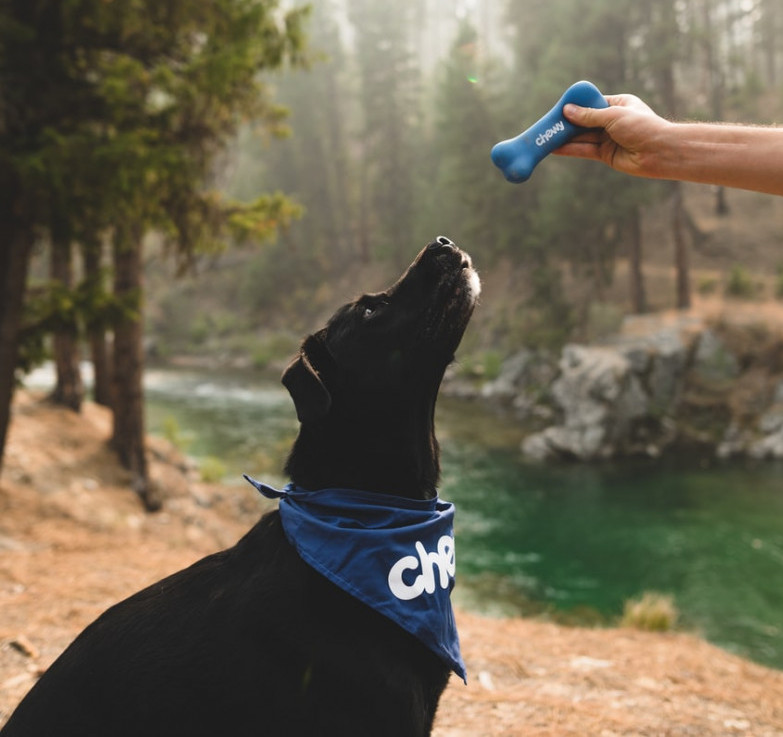Should You Crate Train a Puppy?

You all want your dogs to go to the bathroom and behave well. You wish that your dog does not tear things apart. It can all be possible if you crate train your dog or puppy. Crate training can prove to be crucial for your puppy. Crate training teaches your dog or puppy independence and responsibility.
Many people see the crates as cages in which the dog or puppy is confined. But this is not true at all. Dogs are the type of animals that enjoy living in confined places or dens. Being this way, they feel safe, and it ultimately calms any anxiety that they may experience.
At perfectpuppypal.com, we are not qualified veterinarians or animal nutritionists. The information that we provide is general and educational information only and is not a substitute for professional advice
What is crate training?
Puppy crate training is a process that teaches your puppy that the crate is the happiest place in the world. It is the place where sweet things occur. By assuming this, the puppies become curious and want to spend their time there, relaxing and enjoying themselves.
A well-trained puppy or dog should find no difficulty at all when resting in their crate. The puppy will go voluntarily to the crate or leave it without much hassle or force. They will feel calm inside the crate and feel no stress or fuss. As a pet owner, you want your puppy or dog to feel as relaxed as possible and safe. Your four-legged friend will normally not show any signs of anger or crying inside the crate, which is your utmost desire as a pet owner I’m sure you all can agree!
All this is possible if your puppy completes all the essential steps in the crate training process. If you show negligence in training your pet, it will do more harm than good. A crate training program is for your puppy to feel safe and sound, and certainly to not get stressed. Moreover, your patience is also very crucial in puppy crate training.
It is essential for you as the owner to remain calm and to have as much patience as is needed during the training process. Furthermore, it will help if you give time to your furry friend to understand the entire scenario so that the end results are as desired
Why crate train a puppy?
You must understand the basic concept of crate training before starting to crate train your puppy. Crate training not only  benefits your puppy but also provides benefits to you as well.
benefits your puppy but also provides benefits to you as well.
At first, your puppy will more than likely not love the crate, instead, he will feel isolated, discomforted, and afraid. Take baby steps, first introduce your puppy to the crate and then start putting your puppy in the crate, but all this is to be done with ease. Then, gradually increase the time your puppy spends in the crate. Eventually, after continued efforts, your puppy will feel comfortable, and you both benefit from it.
It is not always true that all puppies love to spend their time in the crate. Suppose your puppy feels relaxed and gets inside the crate every time you want him to do so. And he is happy and playing with his toys and not yelling as well. It means you have done quite an excellent job training your puppy or dog, and you deserve kudos.
You get advantages from crate training until you have fully trained your puppy or dog. Moreover, you will miss all those perks that crate training offers you and your pet.
Vets and breeder’s recommendation
The majority of breeders and veterinarians recommend you start a dog crate training program early. Crate training is crucial for puppies that soil your house. These are housebreaking puppies. They do not want to contaminate their compartments, so they find some other place in the house to get emptied.
Veterinarians recommend crate training for these puppies or dogs so that they learn how to control their bladders. This protects you from cleaning all the mayhem that your puppy does in the house.
When you have to vacate or have to move out in an emergency, then your puppy’s crate training can play a vital role in protecting it from being lost or getting injured.
Tips for successful training

You should do all the processes in a positive sense. Feeding your puppy treats or meals in the crate makes a rewarding impact on your puppy. House training is also vital besides crate training of your puppy or dog. Always limit the time your dog spends in the crate. Do not leave your dog in the crate very long.
Do comprehensive research on how to crate train a puppy, adult dog, or senior dog. Crate training is itself a laborious and time-consuming process. It would be a masterstroke if you keep a positive approach and show great patience, as puppy crate training may take six months or more in the case of stubborn dogs.
Conclusion
I believe that successful crate training depends a lot upon the age and housing ability of a dog and of course the patience of the owner! Puppies are generally easier to train than their adult or more senior counterparts. So, most vets advise pet owners to start crate training their pups at the earliest age possible as enormous benefits can be reaped for themselves and their pets.
If you have any experience in crate training your puppy or dog, or would just like to leave your opinion then please, as always, feel free to leave a comment below.
